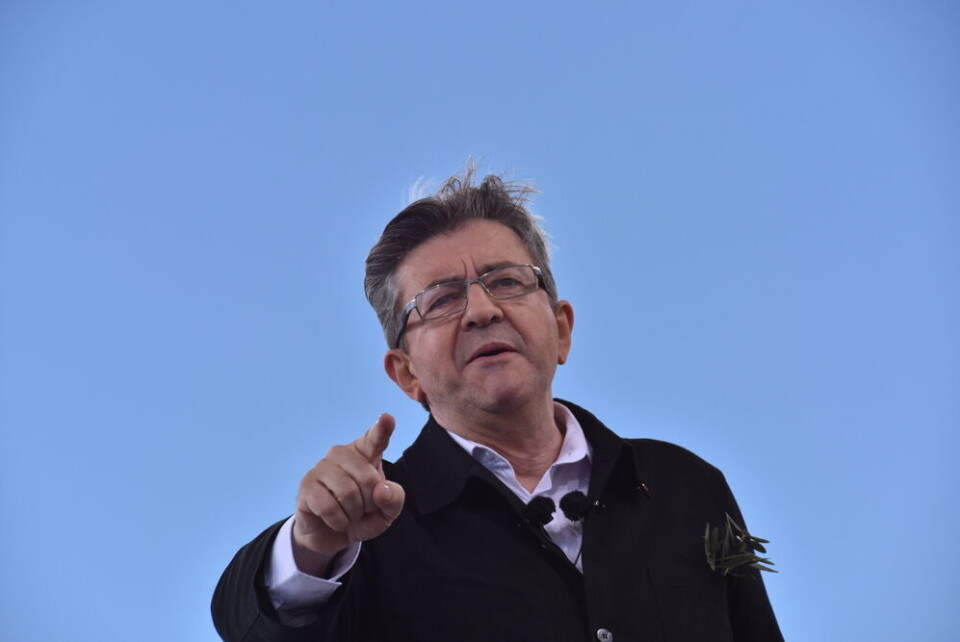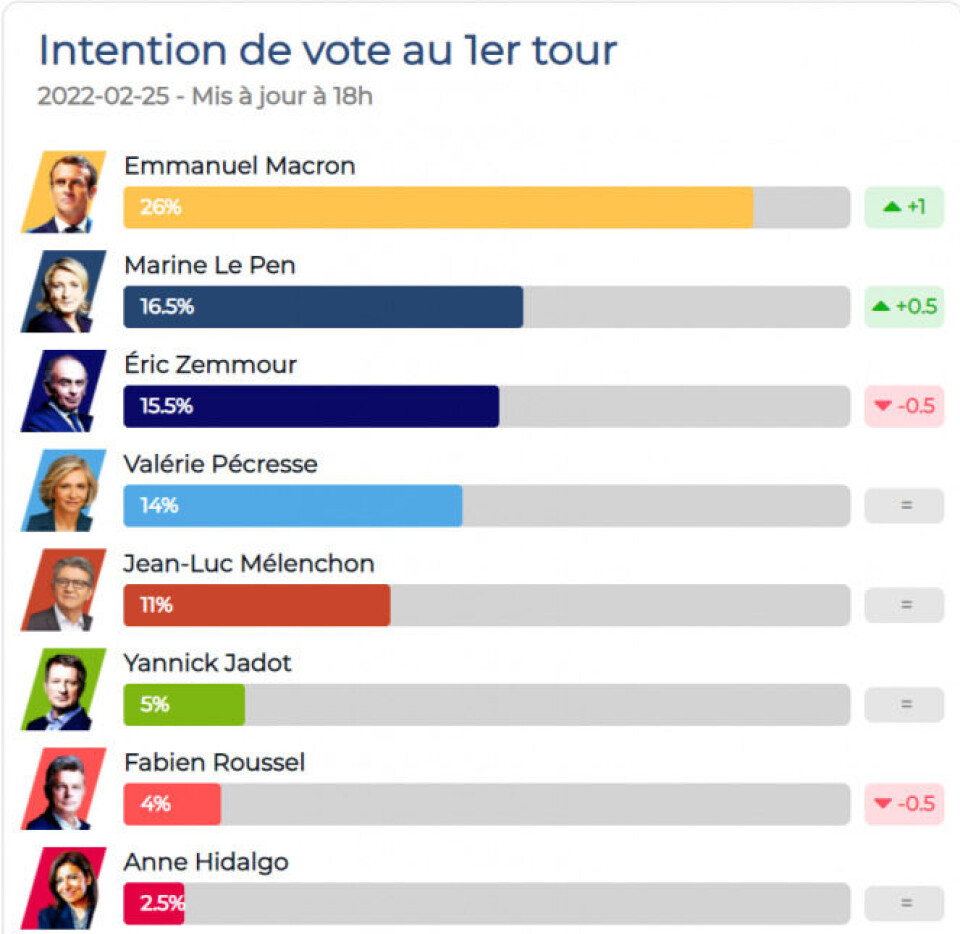-
Farmer protests to continue despite France opposing Mercosur trade deal
French opposition to free-trade deal did not swing scale on key vote
-
UK-EU talks raise hopes of easing post-Brexit rules for Britons in France
Several proposals and plans could ease some post-Brexit complications
-
French study claims ‘Dry January’ participation improves sleep and health
First major study of its kind in France praises challenge, but alcohol-free month is yet to receive official endorsement
French election: Leftist Mélenchon reaches 500 backers with week left
It means he is now officially a candidate in the election. He has said he is relieved to pass the threshold before the deadline on March 4

Left-wing politician Jean-Luc Mélenchon has become the eighth official presidential candidate after he surpassed the threshold of receiving 500 signatures, given by elected officials around France.
These signatures are called parrainages in French, and those wishing to stand in the election must get at least 500 of them. They must come from officials in at least 30 different departments, with no more than a tenth of them from one single department.
Mr Mélenchon’s success comes one week before the deadline to get the signatures, which is set on March 4. He is representing La France Insoumise and is standing to be president of France for the third time, after failed bids in 2012 and 2017.
French writer Gilles Paris described Mr Mélenchon, 70, as a “former Trotskyist turned Socialist turned Mélenchonist”, in an opinion piece for Le Monde.
Mr Mélenchon’s presidential promises include increasing the minimum wage from €1,269 to €1,400 per month, setting a monthly allowance of €1,063 for students in higher education, lowering the retirement age to 60 (from 62) and hiring “one million civil servants”.
He plans to raise funds for this by increasing taxes on the highest earners.
Mr Mélenchon said that he was “of course relieved” to reach the 500-signature threshold, and thanked the elected officials for their support as well as his team for their efforts.
“All my teams have been on the field for weeks and weeks [pursuing signatures],” he said.
“Not everyone is an old trained warrior like I am, so there was a lot of anxiety around me.”
Mr Mélenchon is currently polling as fifth favourite among voters, with the latest poll from Ifop showing 11% of voters intend to back him in the first round of the elections.

Far-right hopefuls Marine Le Pen (Rassemblement National) and Éric Zemmour (Reconquête) are still under the 500-signature threshold, with 414 and 415 backers respectively.
The parrainages can be given to people who have not declared themselves as candidates, such as is the case for Mr Macron, who is yet to officially enter himself in the running.
Those who have so far passed the 500 mark are: Yannick Jadot, Fabien Roussel, Jean Lassalle, Nathalie Arthaud, Anne Hidalgo, Valérie Pécresse, Jean-Luc Mélenchon and Emmanuel Macron.
The candidate who receives the most backing among elected officials is not necessarily the favourite among the electorate.
In 2017, 11 candidates successfully gathered 500 signatures. This was out of a total of 61 names.
The table below shows the Conseil constitutionnel’s official count of parrainages as of February 24, 2022, with just the top 13 candidates displayed.
Who did my mayor or local official vote for?
You can see who your local elected officials voted for, whether it is the mayor, regional or departmental councillor, or other, on a site dedicated to the elections here.
Read more: Which French election candidate does your mayor support? How to check
Explaining the parrainages
The first round of France’s presidential election will take place on April 10 but in order for a candidate to stand, they must receive 500 parrainages.
These signatures must come from officials in at least 30 different departments, with no more than a tenth of them from one single department.
Elected representatives who can give a signature include MPs, senators, representatives of the European Parliament, mayors and presidents of local authorities, councillors of Paris and the Metropolis of Lyon, as well as departmental and regional councillors. In practice, most signatures come from mayors.
There are around 42,000 people eligible to give a candidate their signature. Each can only back one candidate.
As of February 24, 10,265 parrainages have been given.
In 2017, there were a total of 14,296 signatures.
The system of parrainages began in 1962 under President Charles de Gaulle, with the intention of limiting the number of fringe candidates. At the time, candidates only required 100 backers. This was increased to 500 in 1976 to further limit the number of candidates.
Related stories
French election: Trotskyist candidate passes 500 signatures threshold
Signatures, power transfer: key dates for French presidential election
500 signature rule: Zemmour may struggle to stay election candidate
























